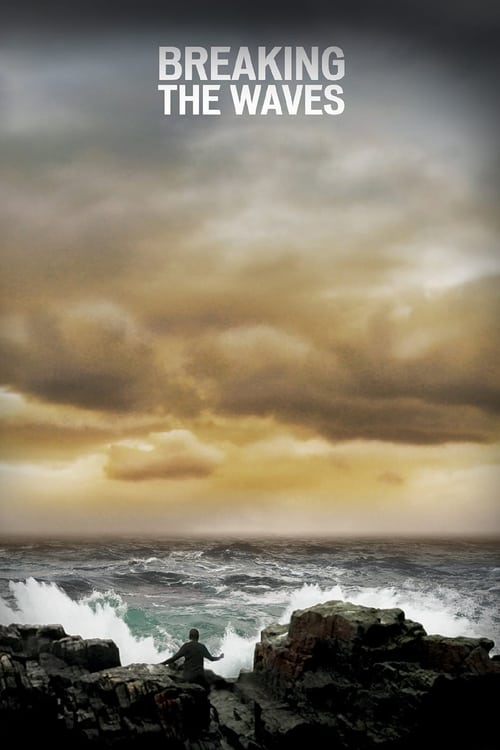
Breaking the Waves
Released: 1996-07-05
In a small and conservative Scottish village, a woman's paralytic husband convinces her to have extramarital intercourse so she can tell him about it and give him a reason for living.
Drama
Romance
7.5 / 979
Duration: 158 min.
Budget: $7.5M
Revenue: $23.0M
Trailer
Gallery
Reviews

CinemaSerf
Rating:7/10
Though I really didn't rate the story so much here, I thought the performance from Emily Watson as "Bess" is formidable. She lives on a remote Scottish island and is to marry oil rig worker "Jan" (Stellan Skarsgård). Somewhat reluctantly, the islanders embrace this and all is happy until she feels the wrench of his return to the rig. Pining for him, she regularly has conversations with God in their small kirk. It's on one such occasion that she begs him to send her husband home to her. Well, he does - but following a tragic accident that has left him completely incapacitated. She is determined to care for him at all costs, but he has other plans and convinces her that she ought to seek another lover. Somehow, she gets it into her head that every sexual act she carries out improves his condition - and so, well you can guess what she succumbs to in her quest to restore him to health. Katrin Cartridge ("Dodo") and Adrian Rawlins ("Dr. Richardson") contribute well in support as this story of a loving, immature and caring character plumbs the depths before an ending that rather summed up for me the cruelty - and implausibility - of the story. What does he actually intend for his wife - whom he clearly adores? What it also takes is an unflinching swipe at is the supposedly charitable nature of a local "wee-free" clergy whose behaviour towards her at the denouement is little short of disgraceful. It also asks us to consider religiosity and the medical profession (or, certainly, it's efficacy) and again I found that annoyingly unrealistic. Miracles happen? Well perhaps, but here they were the wrong kind of miracles! The film is intensively shot, the photography creative and imaginative and it all has an intimacy to it that is largely down to an excellent Watson and a illustration of a small island mentality that is almost claustrophobic but entirely enthralling testament to this director's skilful ability to provoke thought!
Hover to reveal

Filipe Manuel Neto
Rating:1/10
**An ugly film on all levels that insults our intelligence.** For me, cinema is an art that tells good stories, whether fictional, true or a mix of fiction and real facts. It has a clear social role, often makes people think or raises difficult questions. However, there are directors who seem to live off controversy, that is, they try to use cinema to shock or impress, attracting attention for the worst and most selfish reasons. Lars von Trier is like that: he loves a good controversy and doesn't mind about criticism, as long as they talk about him. And that's why I don't like him and I don't consider him a good director. It's not enough to have talent, you need to know how to use it. As in many other films by this director, sex is the epicenter of this film: the script begins by introducing us to an incredibly naive and submissive woman, who lives in a kind of narrow-minded religious community in the North of Scotland. Anyone who likes to criticize Catholics for allegedly being followers of a conservatism that has no place today should get to know this Protestant religious community, where I, a conservative Catholic, would feel like I was in Iran or Afghanistan. It is clear that the director, a confessed atheist, wanted to show his horror towards religious dogmatics in general. It was a way to “caricature” religion and express a personal opinion. This young woman, whose innocence is so absolute that she would probably believe she could get pregnant just by sitting on a chair previously used by a man, marries a modern foreigner who works on an oil rig. And she discovers sex. And she loves sex, and gives herself to love. All this is beautiful until the day he suffers a serious accident. As he could lose his reproductive capacity, he asks her to meet and “relieve” herself with other men. Naturally, she is horrified, and he convinces her that this will help him heal. And against any rational logic, she believes, and becomes the biggest libertine in Scotland. We have to agree on one thing: this film proves that even the stupidest story wins awards at Cannes, and that there is an audience capable of consuming the most complete idiocy that a film can present to them. In addition to ridiculing religion in a way that is offensive to any believer, I believe, the film does not care about the rationality and logic of the decisions made by the characters. If I cut myself with a knife, of course I'm going to try to make sure it doesn't happen again because it's dangerous, but what the film proposes is that I do the opposite and intentionally cut myself, believing that I'm curing a loved one's cancer by doing so. This is so stupid that it doesn't deserve qualification. Von Trier, in an act of absolute intellectual arrogance, insults our intelligence. I don't even need to talk about the clumsy and distorted way in which the film approaches love and the most genuine human feelings. Technically, it's a cheap film. Cheaper than the worst indie films. We don't have a production worthy of the name, the cinematography is horrible, the filming is so amateurish that even I could do better. The rhythm is heavy, slow, like a mournful funeral. Stellan Skarsgard, an actor I respect, lends some renown to the film and shows talent, but his character deserves contempt. In an extraordinary dramatic effort, Emily Watson deserves praise for her commitment, but it is perhaps this actress' most forgettable film.
Hover to reveal